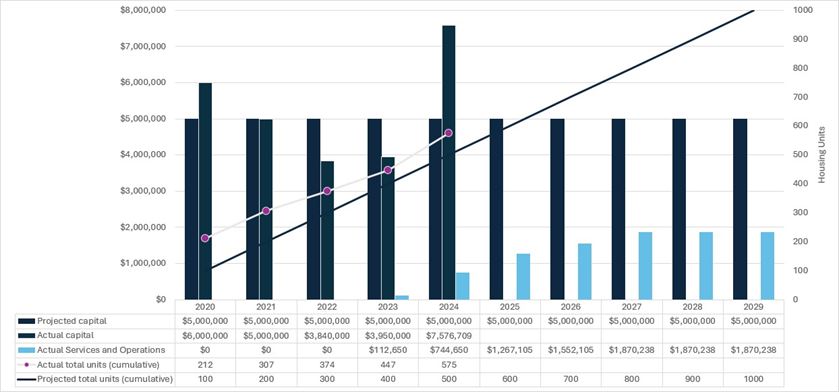Serving our most vulnerable residents
The supportive housing strategy creates housing tailored to the needs and preferences of vulnerable residents being served by Hennepin County Human Services--those for whom housing instability leads to the worst health and safety concerns. These residents typically have a combination of extremely low incomes (less than 30% of area median income or roughly $30,000 for a four-person household), and:
- Need significant assistance to live independently
- Have a disabling condition that increases health and safety risks if unhoused
- Have no other access to existing support services
- Are most at risk of experiencing homelessness and are most likely to require ongoing support or services to live independently
Tenants of projects financed through the supportive housing strategy are identified and referred by Hennepin County’s Human Services departments. Examples of these households include:
- People experiencing the longest periods of homelessness with additional barriers (i.e. “high priority homelessness”)
- People with complex medical conditions and currently homeless
- People with severe substance use disorders
- People with mental illnesses who are leaving treatment, at risk of institutionalization, or living in segregated settings
- People, including transition-age youth, with developmental disabilities, traumatic brain injury, and/or neurodiverse conditions
- People with disabilities involved with department of community corrections and rehabilitation services
- Families with disabilities involved with child protection services
- Youth involved in county systems
